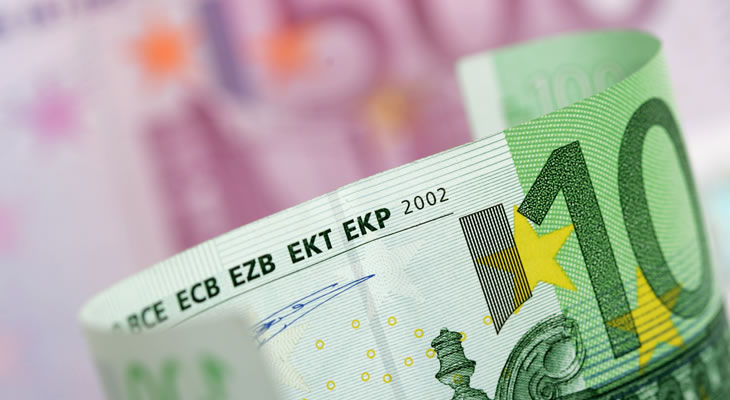In a fresh sign of the persistence of Brexit-based jitters the Pound came under renewed pressure as the GfK consumer confidence index surprised to the downside.
The index fell to its lowest level since July 2016, with consumers expressing greater concern over their finances and the domestic outlook.
This undermined some of the recent strength of Sterling, leaving the Pound Euro exchange rate on a fresh downtrend on Friday morning.
Demand for the Euro rallied, meanwhile, thanks to the bullishness of the latest French and Spanish gross domestic product data.
Both nations continued to demonstrate a solid state of growth in the second quarter, boosting hopes that the Eurozone as a whole remains in robust economic health.
Even so, these stronger showings may not be enough to encourage the European Central Bank (ECB) to begin tapering its quantitative easing program sooner rather than later.
As Bert Colijn, Senior Economist at ING, noted:
‘These figures will please ECB hawks but inflation expectations have yet to improve meaningfully. Selling price expectations for both industry and services increased slightly in July, but are still below where they were at the beginning of the year. As input price growth has slowed, a weak inflation reading for the months ahead seems imminent, keeping the ECB in a difficult position regarding their monetary stance ahead of the important Autumn meetings.’
The latest German consumer price index report could offer the Euro a rallying point, however, if inflationary pressure is shown to have picked up in July.
While inflation across the currency union remains lacklustre in the eyes of the ECB an uptick in the German CPI could still encourage investors to pile back into the single currency in the hopes of a return to greater hawkishness.
GBP Exchange Rates to Weaken in Anticipation of BoE Meeting
Confidence in the Pound is likely to deteriorate once again in anticipation of the Bank of England’s (BoE) August policy meeting.
Although markets are keen to get a fresh gauge of the outlook of the Monetary Policy Committee (MPC) the balance of policymaker opinion is likely to remain tilted towards the doves.
If the BoE talks down the prospect of any return to higher interest rates this could weigh heavily on Sterling, leaving GBP exchange rates to slump sharply.
On the other hand, if hawkish dissent within the MPC is seen to increase this may set the GBP EUR exchange rate on a fresh bullish run.
Volatility could also be in store for the Euro with the release of the latest Eurozone inflation and growth data, alongside July’s German labour market figures.
Any signs of weakness here could leave the Euro vulnerable to increased downside pressure.


Comments are closed.